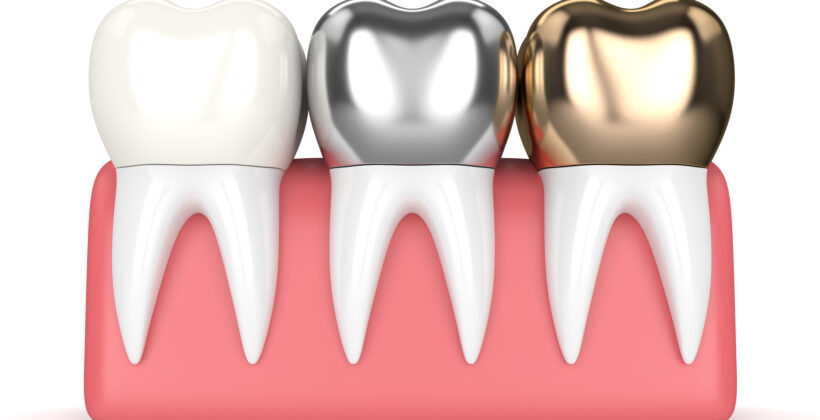Dentists recommend dental crowns for all types of reasons. If you’ve been told you need a dental crown, our guess is that you probably have a severely worn, cracked, or weakened tooth. Dentists also recommend crowns for cavities that are too large for fillings, a root canaled tooth, or to accompany a dental bridge.
These tooth caps are an essential part of gaining optimal oral health for so many people, but before you receive your dental crown, there are a few things you should know.
1. Not all crowns are equal
Dental crowns come in several different types of materials. A dentist determines which material is best for the patient by considering several factors, like the tooth’s location, gum tissue, the function of the tooth, the color of the surrounding teeth, and how much of the tooth shows when he or she smiles.
Based on the dentist’s findings, she will recommend one or more of the following materials:
- Ceramic
- Porcelain
- Metal
- Zirconia
- Composite resin
- Porcelain Fused to Metal (PFM)
- Another combination of materials
Each type of crown comes with various pros and cons. Be sure to ask your dentist about these so you can make the most informed choice.
2. Cost of tooth crowns
The cost of a dental crown depends on the material used, the dentist, your location, and the amount of prep work required. Fortunately, many insurance plans cover all or part of the cost of a tooth crown.
The Cleveland Clinic reports that a tooth crown can cost between $80 and $1,500. Again, this price will vary based on the factors mentioned above.
3. How the procedure works
Traditionally, the dental crown procedure requires two separate appointments. During the first appointment, the dentist takes an X-ray of the patient’s mouth, then takes a mold of the mouth or tooth. Next, the dentist prepares the tooth for the crown by removing part of the dental enamel for the crown to fit over the tooth. Another mold or impression may be made. Finally, a temporary crown is placed to protect the filed-down tooth.
Between appointments, the patient’s custom-made dental crown is being created.
Once complete, the patient return to the dentist’s office to have the crown permanently placed on the tooth.
4. Dental crown care
Caring for a dental crown is just like caring for natural teeth unless you don’t properly care for your natural teeth currently! Your dentist should discuss proper oral hygiene habits with you before or after the procedure. Having a good oral hygiene routine is especially essential for patients with dental crowns.
Here’s what that routine should include:
- Brushing twice a day with a fluoride toothpaste
- Flossing daily
- Quitting tobacco use
- Avoiding hard or crunchy foods
- Wearing a nightguard if you suffer from bruxism
Patients who follow these guidelines are less like to need a dental crown in the first place. Those who already have a tooth crown are less likely to need another one!
5. Dental crown alternatives
There aren’t many dental crown alternatives out there because they do their jobs so well! One possible alternative would be a dental veneer in instances where a tooth is only cosmetically damaged.
Dental Crown in Lombard, IL
Ready to have your dental crown placed? This procedure is best when completed by an experienced and trusted dentist like Dr. Julie Glud. If you live in the Lombard, IL area, call 630-629-5700 to schedule an appointment.

